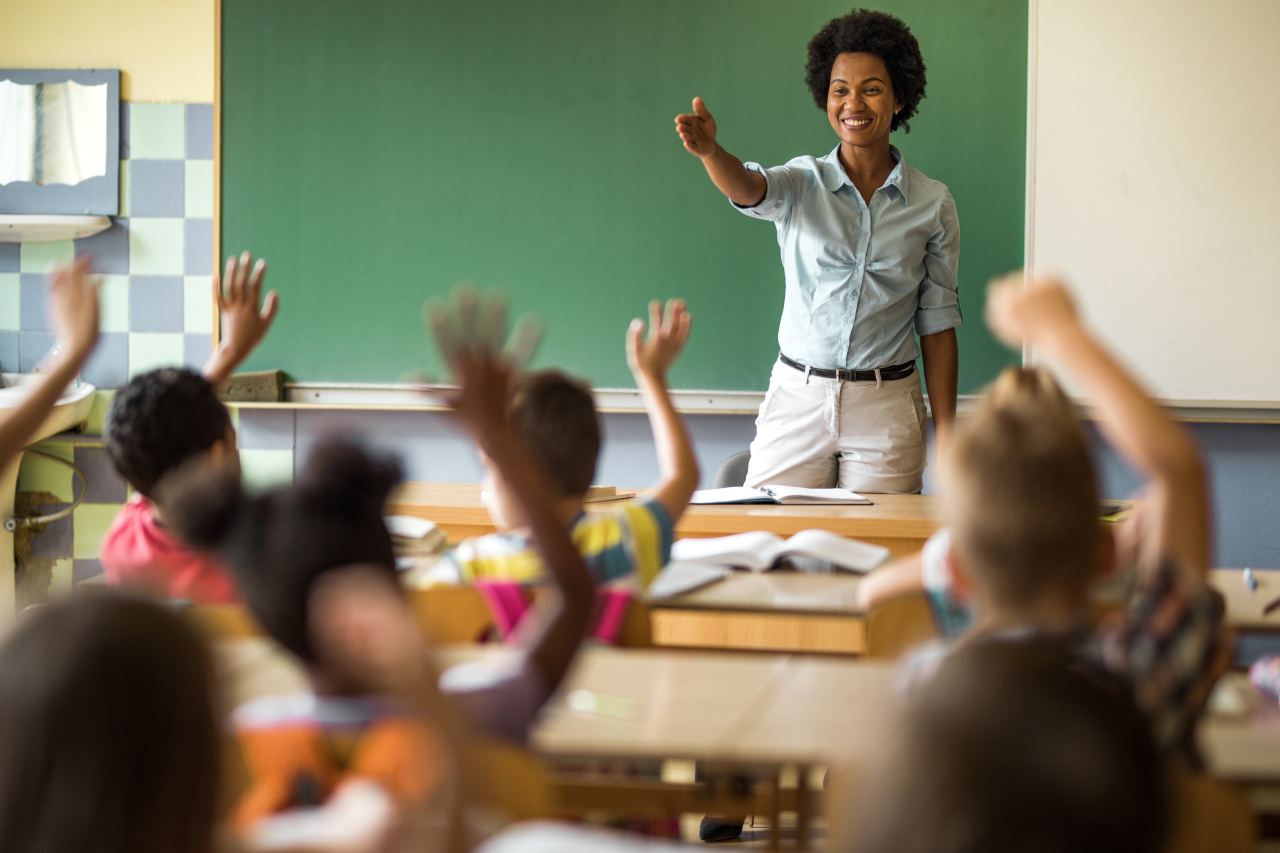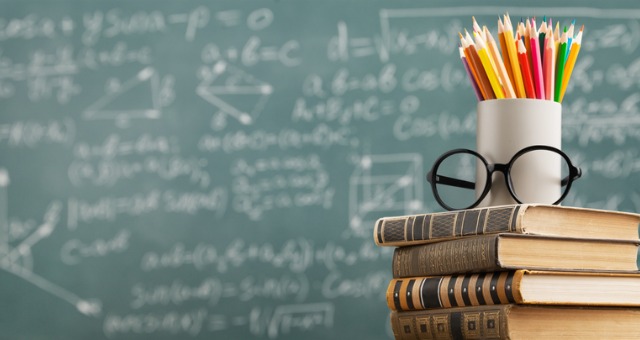Boost Your Child’s Confidence with Primary Science Tuition Singapore
Boost Your Child’s Confidence with Primary Science Tuition Singapore
Blog Article
A Comprehensive Guide to the Various Discovering Techniques in Main Science Guideline
The expedition of diverse knowing methods in main science guideline provides an opportunity for teachers to boost trainee involvement and understanding substantially. By analyzing hands-on knowing methods, inquiry-based techniques, and collaborative approaches, we can identify efficient methods that accommodate various discovering designs. In addition, the integration of modern technology and distinguished guideline plays an important function in fostering a comprehensive environment. The concern stays: exactly how can these techniques be effectively implemented in the class to optimize their effect? The answer depends on a closer analysis of each technique and its implications for teaching scientific research.

Hands-On Understanding Methods
Hands-on understanding techniques play a critical function in primary scientific research guideline, involving trainees in energetic expedition and trial and error. These techniques allow students to engage directly with sensations and materials, cultivating a deeper understanding of clinical principles. By utilizing manipulatives, models, and real-life experiments, teachers develop an atmosphere where pupils can observe, hypothesize, and evaluate their concepts.
Such techniques not just boost comprehension but also grow vital reasoning and problem-solving abilities. When students take part in activities like constructing basic makers, planting seeds, or performing chain reactions, they are urged to ask questions and look for responses via their very own observations. This experiential method aids to debunk intricate clinical principles, making them extra relatable and available.
Moreover, hands-on knowing advertises cooperation among peers, as students typically operate in groups to perform experiments or share findings. This team effort not just improves their understanding experience yet additionally establishes vital social skills. Inevitably, incorporating hands-on methods in main science instruction fosters a long-lasting love of discovering and curiosity concerning the natural globe, laying a strong structure for future academic searches in science and past.
Inquiry-Based Knowing
Inquiry-based learning is a training approach that motivates pupils to ask concerns, explore phenomena, and build their very own understanding of clinical concepts. This approach changes the focus from conventional teacher-led guideline to a much more student-centered experience, where students take the effort in their academic trip. By fostering interest, inquiry-based understanding advertises deeper interaction with the product, permitting pupils to discover subjects in a purposeful context.
In technique, this approach typically includes hands-on experiments, observations, and essential reasoning tasks that straighten closely with the clinical approach. Students are urged to create theories, layout examinations, and evaluate data, which cultivates crucial abilities such as problem-solving and analytical thinking. The duty of the educator in this framework is to facilitate expedition, guiding students through the questions process while motivating independent thought and cooperation.
Furthermore, inquiry-based understanding supports a sense of ownership over the knowing procedure, motivating students to go after knowledge proactively. This method not just improves understanding of clinical concepts however also promotes a lifelong love for knowing, outfitting trainees with the abilities required to browse an increasingly complicated world.
Collaborative Discovering Approaches
Collaborative knowing techniques empower trainees to participate in significant interactions with peers, promoting a shared responsibility for their educational outcomes. In primary science instruction, these strategies encourage learners to work with each other to discover clinical ideas, address problems, and perform experiments (primary science tuition Singapore). By taking part in team activities, students can utilize varied perspectives, permitting richer understanding and retention of scientific knowledge
One key facet of collective knowing is the emphasis on interaction skills. Students need to articulate their ideas, listen proactively to others, and negotiate concepts, every one of which are crucial proficiencies in both academic and real-world contexts. This social communication not just improves their understanding of scientific principles however likewise advertises teamwork and dispute resolution abilities.
When students see the value of their payments within a group, they are more likely to take possession of their understanding journey. Generally, integrating joint discovering strategies in primary scientific research instruction cultivates a dynamic learning setting that prepares pupils for future academic and social challenges.
Modern Technology Integration in Scientific Research
The combination of innovation in main science guideline improves finding out experiences by offering ingenious devices and sources that sustain different training approaches, including joint discovering - primary science tuition Singapore. The usage of digital platforms, simulations, and interactive applications allows trainees to engage deeply with clinical concepts, helping with a much more hands-on approach to knowing
Online laboratories, for instance, enable learners to carry out experiments safely and successfully, promoting inquiry-based learning. These tools can imitate real-world clinical scenarios, enabling students to imagine complicated processes that would be tough to replicate in a typical class setup. Technology cultivates communication and partnership amongst trainees, as they see here can share findings and work together on projects through on-line systems.
Furthermore, multimedia discussions and educational video clips can enrich lessons by providing to varied discovering designs, making abstract ideas extra available. Information analysis devices also empower trainees to gather and analyze clinical information, reinforcing vital thinking abilities. In general, the calculated consolidation of innovation in key science guideline not only improves engagement however likewise prepares students for a technologically sophisticated society, outfitting them with crucial skills for future scientific endeavors.
Differentiated Guideline Approaches
Distinguished guideline techniques are important for dealing with the diverse requirements of learners in key science education and learning. These approaches allow educators to customize their training techniques to fit differing capabilities, passions, and finding out designs within the class. By utilizing distinguished instruction, teachers can create a comprehensive setting that cultivates interaction and enhances understanding of clinical principles.
One reliable approach is to make use of flexible organizing, which allows students to work together with peers at comparable ability degrees or with varying viewpoints. This method motivates peer learning and advertises important reasoning. Additionally, offering selections in assignments can encourage students, allowing them to choose tasks that reverberate with their interests while still satisfying curricular purposes.
Additionally, incorporating tiered projects is another beneficial method. By developing jobs with varying levels of intricacy, educators can guarantee that all trainees are properly challenged, no matter their effectiveness. Making use of developmental evaluations to assess recognizing more makes it possible for instructors to readjust their training techniques dynamically, guaranteeing that each learner obtains the assistance they need.
Eventually, carrying out set apart read what he said direction strategies in main scientific research education and learning not just improves student discovering end results yet also cultivates a passion for scientific research, preparing this page students for future academic searches.

Final Thought
In recap, reliable key scientific research instruction necessitates a diverse strategy that encompasses hands-on knowing, inquiry-based methods, and collaborative methods. The combination of innovation and distinguished instruction additionally caters to diverse learning designs, promoting an atmosphere conducive to expedition and crucial reasoning.
The expedition of diverse understanding techniques in primary scientific research instruction provides an opportunity for instructors to boost pupil interaction and comprehension significantly.Hands-on understanding methods play a critical duty in main scientific research instruction, engaging pupils in active exploration and experimentation.Inquiry-based understanding is an instructional strategy that encourages trainees to ask concerns, explore phenomena, and construct their very own understanding of clinical concepts.Collective discovering approaches empower students to engage in meaningful communications with peers, fostering a common obligation for their educational end results. In general, incorporating collective knowing methods in key scientific research guideline cultivates a dynamic understanding environment that prepares students for future academic and social difficulties.
Report this page